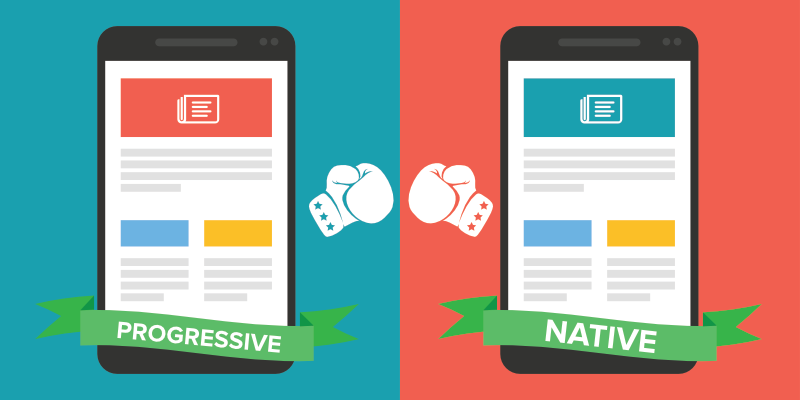Discover Australia's Finest
Explore the latest news, insights, and stories from down under.
Progressive Web Apps: The Future of Mobile Browsing
Discover why Progressive Web Apps are revolutionizing mobile browsing and unlocking a seamless experience for users everywhere!
What Are Progressive Web Apps and How Do They Work?
Progressive Web Apps (PWAs) are a modern approach to app development that blend the best of web and mobile applications. They are built using standard web technologies like HTML, CSS, and JavaScript, making them accessible through web browsers. What sets PWAs apart is their ability to deliver a native-like experience, such as offline access, push notifications, and fast loading times. Unlike traditional mobile apps, users don't need to download or install these applications. Instead, they can simply visit a website and 'add to home screen' for quick access, enhancing user engagement and retention.
PWAs function by leveraging several key features that improve user experiences: Service Workers, Web App Manifests, and responsive design. A service worker is a script running in the background that enables offline capabilities by caching resources and background data synchronization. The web app manifest is a JSON file that provides metadata about the app, defining how it appears on a user's home screen and allowing for custom icons and splash screens. Through responsive design, PWAs adjust seamlessly to different screen sizes and orientations, ensuring a smooth experience across devices from desktops to smartphones.

Top Benefits of Progressive Web Apps for Businesses
Progressive Web Apps (PWAs) offer businesses a myriad of advantages, transforming the way they interact with users. One of the most significant benefits is improved user engagement. PWAs provide app-like experiences on the web, allowing users to load content quickly and navigate smoothly. This enhanced experience encourages users to spend more time on the site, ultimately leading to higher conversion rates. Moreover, utilizing service workers, PWAs can function offline and send push notifications, which helps keep users informed and engaged, even when they are not actively browsing.
Another critical advantage of PWAs is their cost-effectiveness. Developing a PWA can be more economical than creating separate native apps for multiple platforms, as a single codebase can function across both desktop and mobile devices. This not only reduces development time and costs but also simplifies maintenance and updates. Additionally, PWAs can improve SEO rankings due to their fast load times and enhanced user experience, driving more organic traffic to businesses. In today's competitive digital landscape, investing in a PWA could be a game-changer for brands looking to maximize their online presence.
Are Progressive Web Apps the Solution for Mobile Browsing Challenges?
As mobile browsing becomes increasingly prevalent, Progressive Web Apps (PWAs) emerge as a promising solution to address various challenges faced by users and developers alike. These applications leverage modern web capabilities to deliver an app-like experience directly in the browser, providing advantages such as faster loading times, offline access, and improved performance. The rise in mobile usage necessitates a shift in how web content is delivered, and PWAs can drastically enhance user engagement and retention by offering seamless navigation and a responsive design that adapts to any device.
Moreover, one of the key benefits of Progressive Web Apps is their ability to work across different platforms without the need for separate installations from app stores. This not only simplifies the user experience but also allows developers to maintain a single codebase, reducing development time and costs. With their ability to deliver push notifications and provide a reliable offline experience, PWAs are not just a trend but a substantial advancement in mobile browsing that addresses persistent issues, making them a viable solution for modern web applications.